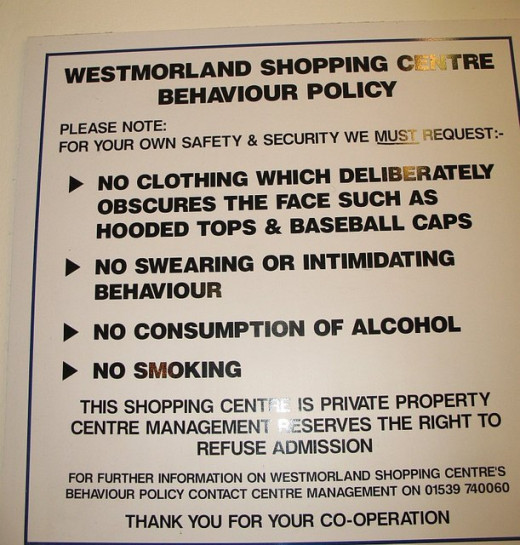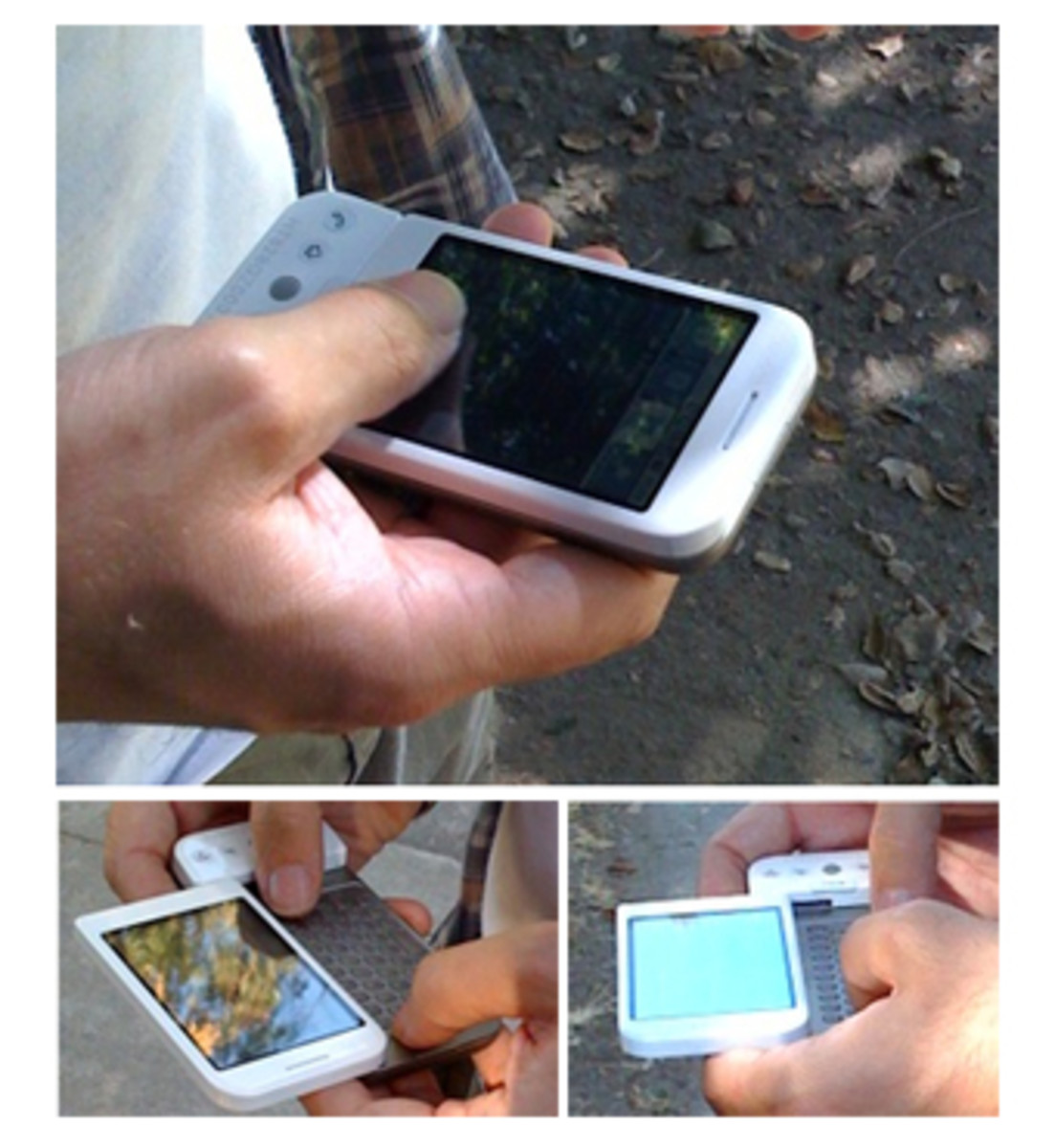How to be a Decent Human Being (At Least in Public)
Preface
I've written a number of articles, all over the internet. Many of them have been instructional and/or educational, and I got to thinking that perhaps a piece of this nature was in order. As a person who has spent a lot of time working, managing, and even shopping in public (rather than on the interweb, or via mail-order if that's still a thing,) I have made a goodly number of observations about human behavior and perceptions. I hope that said observations can be of some use to people, by which I mean humor because nobody is ever going to read this as an actual "how-to" article. That would require someone taking me seriously, and we all know that isn't going to happen.
![See page for author [Public domain], via Wikimedia Commons See page for author [Public domain], via Wikimedia Commons](https://usercontent1.hubstatic.com/12127884.jpg)
Clothing and Self-Perception
Not only does what you wear influence the opinions of others, it influences your behaviors as well. According to The Journal of Applied Psychology:
"Results show that participants who were dressed formally used more formal adjectives than casual ones to describe themselves. The opposite was true in participants wearing casual clothes. In addition, formally dressed participants responded faster to formal than to casual adjectives, while this difference was reversed in casually dressed participants."
-Hannover, B. and Kühnen, U. (2002), “The Clothing Makes the Self” Via Knowledge Activation. Journal of Applied Social Psychology, 32: 2513–2525. doi: 10.1111/j.1559-1816.2002.tb02754.
Phase 1: Before You Leave the House
I want to preface this section by saying that I am firmly of the opinion that spending two hours dolling up before you go to the supermarket is asinine. I am not suggesting that anyone, ever, waste that much of their life on personal hygiene. Seriously. Don't. It's dumb.
Perception, as common sense dictates, is in significant part a matter of visual response. In other words, if you look like a respectable human being, people will initially view you as such and, in the event of an interaction of some kind, treat you as such out of the gate. That isn't to say that you should run around in your Sunday best at all times, nor does it justify acting like a jerk.
So, the first thing that I ask of you, general public, is to look in a mirror before you leave the house. Your sweat-and-crumb speckled tank top and a pair of gym shorts is great for lounging around the house, but when it's time to go outdoors, put on something decent. Stains are a no-go, for one. If your formerly white shirt looks like a yellow-and-brown Rorschach test, throw it out. Second, a good gauge is a simple sniff test. If it smells bad, don't wear it. Period.
Next, whatever hair you have on your head and face has certain basic grooming measures. Do them. I, for example, have a zero-maintenance haircut, but I have a full beard that requires a trim now and then, and a bit of effort pertaining to preventing it from sticking straight out, perpendicular to my face, like a cartoon character being electrocuted. Take five minutes to look like you care about your appearance, and you'd be amazed how much better you're treated.
Finally, while you might just think that your eclectic sense of style speaks volumes to your personality and is an expression of your unique personality, don't dress like you fell into a rack at the second-hand store. No matter how you feel about it, if you walk outside in rainbow tights, a bright yellow jacket, with a hat shaped like a stuffed animal, no one is going to take you seriously. They are at best going to think that you have a psychological disorder, and at worst think you are a clown (in the worst possible context.)
How important do you think clothing is to how others perceive you?
Phones at the Table
A recent Craigslist post from someone claiming to be a restaurant manager alleges that service time has been severely influenced by smartphones. While the authenticity of said post is questionable, there is no debate about the fact that many high-end (self-proclaimed and otherwise) eateries do not allow the use of cell phones.
Beyond the obvious lack of attentiveness by patrons, service is allegedly slowed by staff being asked to help type in WiFi passwords, requests to charge phones, and of course people taking photos of their food from fifteen different angles and with twenty different stylish filters. The more time you spend snapping pictures at the table, the longer the next person has to wait to sit down and get to their meal. It's just common sense.
Phase 2: Public Behavior
This is a pretty big category, so I'm going to carve it up a bit and try to be as concise as possible. I'll leave out a few common sense matters (i.e. don't fart on anyone) in the hopes that no one needs to be told that.
First of all, show some manners. There is nothing, and I mean nothing, wrong with being polite to people. Holding open a door, saying "excuse me," or even a simple smile and nod in passing give the impression that you are (surprise surprise) polite and respectful. That, believe it or not, is a very good thing.
Next, lose the cell phone. Whether you're in a supermarket or a restaurant, get off of your phone, especially if you're making a transaction. If you're texting away or playing a game, you aren't paying attention to your surroundings and people will feel slighted. Essentially, people who look at you have the impression that you are so solipsistic (Look it up) that nothing outside of your little bubble matters, including them.
To cite an example or two, I have seen people on phones walk into and/or knock over the following: Product displays, fountains, parked cars, other adults, and on one occasion a toddler who proceeded to scream like a banshee for ten minutes. The people around you are more important than your social media, text messages, or anything else that may be on your mobile device whether you like it or not.
Next, get your nose out of the air. No matter how important you are, people do not respond well to snobbish behavior. You are not more important than the people around you, don't treat them like they are beneath you. This applies most often to employees of the establishment you find yourself in. Cashiers, stockers, clerks, postal workers, customer service associates, and servers suffer more than anyone in this area, and it's just plain wrong. If you treat people like something that you stepped in, it is my opinion that they should have every right to knock you down a peg, whether verbally or physically.
Finally, mind what comes out of your mouth. Don't yell, scream, make obnoxious noises, and most of all, do not swear. It makes people uncomfortable at best, and offends them at worst. This includes cell phone and direct conversation. No matter how funny that post on your social media feed is, there is no reason to guffaw at full volume and call your friend to screech about "how f'ing funny" it is.
Swearing really deserves special note, because it is so often done. Okay, maybe you're talking to people who don't mind a bit of colorful language, but if other people can hear you, don't do it. In my managerial days, I threw more people out of my store for swearing loudly than anything else. Would you want your child hearing someone dropping F-bombs at the supermarket? I didn't think so.
How angry does people swearing in public make you?

Summary
Looking and behaving like a decent person is not terribly difficult. This makes it all the more sad that people just plain don't do it. While I personally prioritize behaviors over appearances in these situations, the fact of the matter is that we all develop an impression of a person first by looking at them. If that first impression is bad, you're off to a bad start no matter how decent you might act. If you act like a jerk, appearance won't save you. You're still a jerk to everyone around you.
Short version, bear in mind the following things when you're going to be around other people and you'll be okay.
- Don't wear dirty/jacked up clothes.
- Wash yourself too.
- There's a time and place for cell phones.
- Keep your voice down.
- No Swearing!







